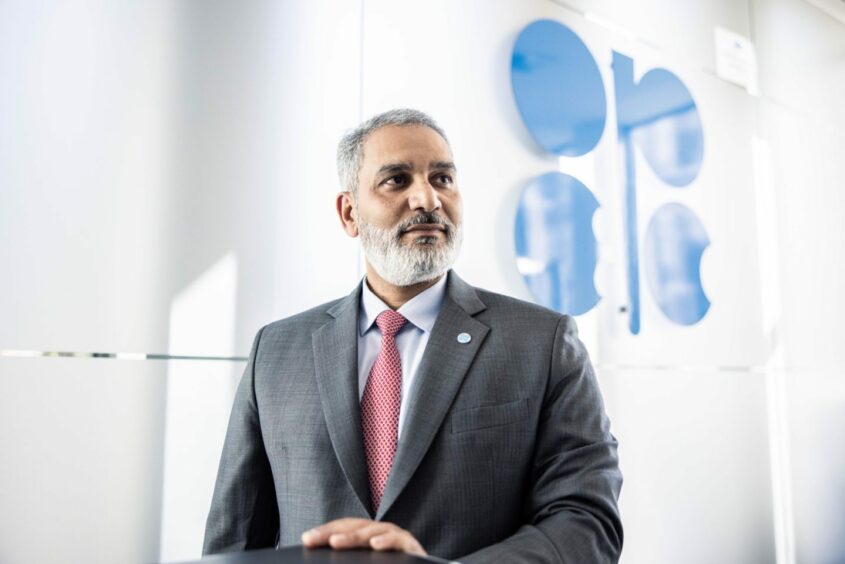
OPEC’s top official urged countries to invest much more in oil to meet the world’s future energy needs and said climate policies need to be more “balanced and fair.”
“It is imperative that all parties involved in the ongoing climate negotiations pause for a moment; look at the big picture,” Haitham Al-Ghais, secretary-general of the Organisation of Petroleum Exporting Countries, said Sunday at an energy conference in Cairo. They must “work towards an energy transition that is orderly, inclusive and helps ensure energy security for all.”
His comments came amid a shift among some Western governments and companies regarding fossil fuels. Prices for oil, natural gas and coal surged after Russia’s invasion of Ukraine last February, pushing energy security to the top of the agenda for many leaders.
US President Joe Biden went off-script during his State of the Union speech last week and said: “We’re going to need oil for at least another decade.” In Europe, Shell Plc signalled it will stop accelerating spending on renewable energy, while BP Plc slowed its planned reduction of oil and gas output.
OPEC’s Al-Ghais said the oil industry had been “plagued by several years of chronic underinvestment.” It needs $500 billion of investment annually until 2045, he said.
The United Arab Emirates’ hosting of the COP28 climate summit in late 2023 will “serve as a fresh opportunity to explore inclusive, sustainable and consensus-based solutions to climate change,” said the secretary-general, who’s from OPEC member Kuwait.
The UAE, also part of OPEC, has appointed Sultan Al Jaber, head of national oil and gas firm Adnoc, as president for the summit. While that’s caused some controversy, Al Jaber has said that hydrocarbon producers must be at the forefront of climate talks if the world is to transition to cleaner energy while also ensuring that fuel prices remain affordable.
Al Ghais reiterated that OPEC and its partners — known as OPEC+, the 23-nation alliance is led by Saudi Arabia and Russia — are committed to keeping the oil market stable.
Saudi Arabia and other core OPEC members are unlikely to respond to Russia’s announcement on Friday of a production cut by pumping more, Bloomberg reported.
While Moscow indicated late last year that it may reduce output as a retaliation against Western sanctions, crude prices still jumped on Friday. Brent extended its weekly gain to 8.1%, closing at $86.90 a barrel.
